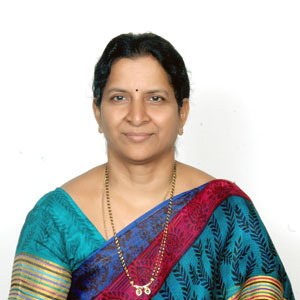 Dr. M. Sujatha
Dr. M. Sujatha
Principal Scientist
Dr. Sujatha has experience in plant genetics, wide hybridization, marker assisted breeding, tissue culture and biotechnology. She is actively engaged in research programmes of the institute through institute support and also through external funding, acquired new skills by undergoing training in reputed laboratories and imparting training to researchers and students. She has developed male sterile lines in safflower, sunflower and niger. Perfected tissue culture and genetic transformation protocols for castor (first reports in the world of direct and vector mediated transformation methods), sunflower, safflower, niger and Jatropha. She has developed the insect resistant transgenic events in castor through deployment of Cry1Ec and Cry1Aa genes and subjected them to preliminary field evaluation as well. She has tagged and mapped a new source of downy mildew resistance gene (Pl13) at a close distance of 0.9 cM and a fertility restorer locus Rf3 in sunflower. Developed transformation protocols by circumventing the difficulties associated with sunflower and developed transgenics harbouring the TSV-CP gene for conferring resistance to sunflower necrosis disease. For the first time she has successfully disclosed the regions of genetic diversity and gene flow in Jatropha curcas using biochemical characters and molecular markers which provided valuable clues for widening the genetic base of the crop; developed reproducible molecular markers for distinguishing toxic and non-toxic J. curcas accessions as a prelude for marker assisted breeding. Use of these molecular markers for identification of non-toxic genotypes has been successfully demonstrated at Mexico. Dr. Sujatha has developed prebreeding materials in sunflower through interspecific hybridization which are being used in the AICRP network on sunflower in India as sources of resistance to several biotic/abiotic stresses and for other desirable agronomic attributes. Dr. Sujatha possesses excellent communication skills and most of her publications appeared in peer-reviewed journals with high impact.
